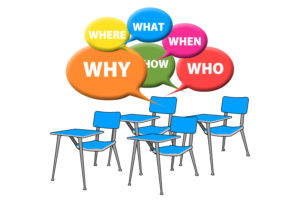Walking in to a classroom where students are actually involved in true cooperative learning can be a challenge. Cooperative learning done well is not as easy as it looks. It takes foresight, planning, and intentionality in order to pull it off well. Some confusion still exists among teachers about what actually constitutes cooperative learning and what is simply group work with a fancy name attached. Cooperative Learning is one of those strategies in education that has more than enough research behind it that it is worth incorporating in your teaching if you don’t already use it.
In this multiple part series, we are going to explore the characteristics, dynamics, and challenges of a variety of learning scenarios, group work and cooperative learning included, and then learn a fun way to introduce your students to true cooperative learning if you haven’t already done so.
In this first part of the series, let’s clarify 4 types of learning scenarios.
A lot of what happens in classrooms is considered individual learning. Students work alone, complete tasks alone, and demonstrate mastery towards learning goals alone.
Teachers, in an attempt to add some excitement to a lesson and keep students engaged, may choose to incorporate review games or other types of competitive activities to keep students interested and focused. Students who are competing against each other to “win the game” (learn information) are really working against each other when it comes to learning. Helping the other side is a no-no in competitive learning situations.
Cooperative learning requires that students work together to complete a shared learning goal. The main challenge with cooperative learning lies in how to get students to cooperate and work together in order to achieve the learning goal.
Unfortunately, many times what happens is teachers place students in groups and assume that students know how to work together. What ends up happening is students work independently while standing next to each other in a group. The teacher calls it cooperative learning, when in reality no cooperative learning is taking place. This is really individual learning taking place in a group setting – a.k.a. group work.
Each of these learning scenarios has its place in the classroom. But each of these strategies must be intentionally selected in order to accomplish what the teacher intends and for the benefit of the students.
In part two of this series we will look at the characteristics and impact of each of these learning scenarios.




